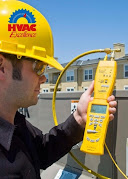Transitioning from Technician to Teacher

Transitioning from Technician to Teacher
Written by: Andy
Erbach
Teaching has always been a part of our profession—whether it
is teaching customers to use new technology, sharing a new technique or process
with other technicians, or simply helping a coworker who needs some basic customer
service skills; you have already served in the role of an instructor often in
the normal course of your work.
Because your success as an instructor will be determined by
the performance of others (your students), it is important to understand how
people learn and how to communicate most effectively with the individual learners
in a way that is effective and relatable. In this series of articles, we will
examine various ways to help technicians
who are transitioning to teachers develop the skills needed to succeed in an
instructional role.
One basic principle of education is that learning goes from the known to the unknown, meaning that a person already possesses some knowledge, and it is your job as the instructor/teacher to enlarge this knowledge base. This requires that you determine what the person being trained already knows about the subject being taught. In a classroom setting this may require a review of fundamentals or might be done through the use of an assessment exam.
Figure out what the learner already knows before venturing into new concepts and techniques.
- Ask the learner to tell you what they already
know about the subject.
- Ask the learner to give examples of their knowledge. For example, heat transfer using a pot on the stove.
Review the fundamental principles associated with the new technique being taught.
- Correct and explain any misunderstood concepts
that the learner may have.
- Avoid words like WRONG and MISTAKE and replace them with CLARIFICATION and OBSERVATION. Nobody likes to be corrected harshly.



Comments
Post a Comment
This is a professional forum and we appreciate all comments being kept professional and in good taste.